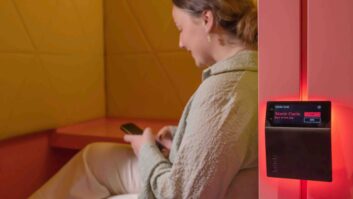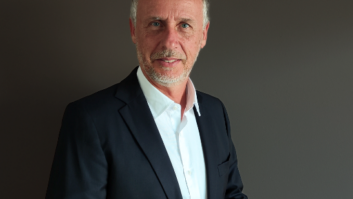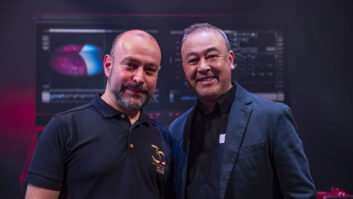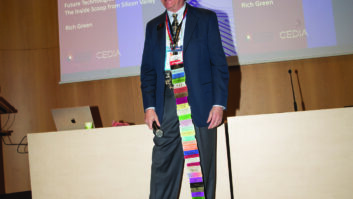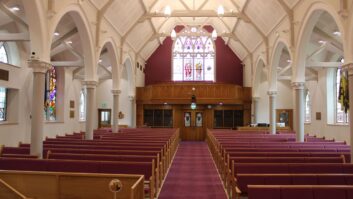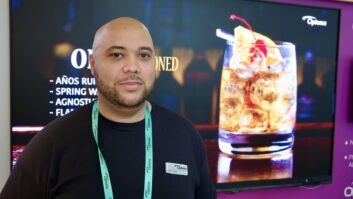Growing political uncertainty and a decline in economic confidence have dominated mainstream media coverage of Spain in recent months, both nationally and internationally. Unfortunately, there is little indication that this downbeat emphasis is likely to change any time soon.
Following an impressive economic trajectory in the period from 2000 to 2007, real GDP growth has been on the slide for many months, and the latest forecasts suggest that the decline will continue throughout 2009. Construction is one of many sectors to be feeling the pinch, and as a result an increasing number of workers are facing the prospect of redundancy. By the end of March, unemployment had reached 17.4% – double the jobless total at the same time last year – although there were some signs in early May that the rate of increase was beginning to slow.
Attempts at addressing these various problems are not being assisted by Spain’s current political status quo. While the governing Spanish Socialist Workers’ Party (PSOE) led by José Luis Rodríguez Zapatero gained a second term of office in March 2008, it did not secure an absolute majority. The government is currently pressing ahead with a stimulus package worth approximately £63 billion in a bid to inspire renewed growth and create jobs.
In fairness, it’s not all bad news, and it is important to note that there continue to be some positive economic indicators – levels of foreign investment in the country, in particular, remain high.
“According to Bank of Spain data, gross foreign investment was ?43,967.2 million in 2008 – 4.2% more than in 2007 (?42,205 million). This shows the ongoing attractiveness of Spain for foreign investors despite major economic and financial uncertainties around the world,” says Antonio Hernandez, chief strategy officer of Invest in Spain, an organisation that works to promote, attract and retain foreign investment in the country.
Testing times?
Taken as a whole, the responses of the suppliers, manufacturers and installers who spoke to IE for this feature provide reason for concern and optimism in roughly equal measure. More traditional install venues such as bars and restaurants are undoubtedly under pressure as Spanish citizens cut back on their leisure spending. On the other hand, the residential and large-venue sectors appear to be ticking along nicely, ensuring a valuable supply of work for many companies.
For example, Javier Segovia, country manager for lighting control technology provider Lutron Spain, highlights the fact that “the hospitality and residential sectors are performing particularly well, especially considering the economic climate”.
Home automation technology developer Control4 – which recently signed a new distributorship in Spain with Genesis Technologies Iberica – also attests to the strength of the residential sector. “The prospects for the home automation market in Spain are strong,” says Brian Chapman, vice president of EMEA sales.
Marc Arnau, marketing manager at Mitsubishi Electric Spain, says that the supply of equipment to stadiums, museums, auditoria and exhibition spaces continues to be “one of the most interesting growth areas for us… Digital signage is also a growth area in Spain, and we have supplied a significant number of projectors and LCD public display monitors to shops and public transport systems.”
Mercedes Sainz, sales manager, Spain and Portugal at Norwegian projection systems manufacturer projectiondesign, highlights the growing popularity of visualisation technology. “We are noticing some effects [from the downturn] in more mainstream areas. However, we are enjoying the increased activity, opportunities and interest from niche and specialised markets such as 3D projection, advanced visualisation, simulation and training,” she says. The company is developing 3D projection projects for a variety of markets, including simulation, virtual reality and rental applications.
But while there are undoubtedly many bright spots, there is also some feeling of trepidation about the short- to mid-term future. Arnau says that the education sector has been seriously affected, “where many institutions have delayed the renewal of ageing AV equipment as budgets have been squeezed”.
Elsewhere, D.A.S. Audio marketing director Roberto Giner says that the impact of the downturn is noticeable on “smaller private installations like clubs, bars and leisure venues. There aren’t too many people willing to invest now with the uncertainty of the economy and high unemployment rates. It’s interesting to note, though, that most of the places that are open are full at weekends!”
Double hit
Putting the situation into a wider context, Juan José Vila from Valencia-based AV technology provider Equipson believes that the industry is contending with the effects of two crises: the global economic problem and the decline in Spain’s construction industry. The area of the installation business impacted by new construction projects is, he says, “very hard now”.
With private sector funding likely to remain at a premium for some time, many will be hoping that the public sector initiatives encapsulated by the aforementioned government stimulus package will increase the flow of new projects.
“Hopefully, the government’s private spending plans to stimulate the economy will provide some opportunities for installations,” says Giner. “My opinion is that until the economy turns around and money starts flowing, private small-scale installations will be on standby, [meaning that] most of the new business will be through the public sector.”
At the risk of understatement, it would be fair to say that the global downturn constitutes an unfortunate turn of events given that the fundamentals of the Spanish installation business are so overwhelmingly sound. As numerous interviewees attest, the customer focus on quality and versatility of equipment has become much more acute in recent years, with positive implications for the standard of installations. Both installer and customer expectations are higher, and this can only be regarded as a positive development.
Audio is just one area in which this trend is discernible. “In the old days, audio tended to be left until later on [during a project], but now people realise its importance more and more. New rules concerning fire and safety have probably contributed to this,” says Nacho Alberdi, managing director of Barcelona-based Seesound, which is the parent company of audio brand Vieta Pro.
Giner also pinpoints the fact that “people want to hear things, they want to hear what is going on and is good; intelligible sound is important. This means that the demand is there for the renovation of a lot of venues, especially stadiums and sports arenas. Now all we have to do is find out if the money is there.”
As audio installations continue to become more sophisticated, it seems inevitable that networking will play a greater role in an increasing number of installations. “Ethernet networks are well known but some installers still prefer to use more simple systems,” claims Vila. “What we do with our devices is to make them ‘plug and play’ so they automatically set up IPs and find each other on the network [with virtual transparency] to the installer.”
In a wider sense, there seems to be a general feeling that those companies able to provide an extensive portfolio of solutions and/or all-in-one packages are poised to enjoy the greatest rewards – both in the short term and when the inevitable recovery takes place.
“The Spanish installation sector is quite self-contained compared with other European markets,” suggests Arnau. “Here, our wide product range is a big advantage because it enables us to offer integrators a one-stop solution. In a recent stadium project, for example, we supplied not only the LCD monitors for the concourse displays, but also the DVR security recording systems.”
Investing in the future
Despite the present uncertainty, many companies are continuing to make investments or changes that promise to strengthen their market position, and enhance the support and services they are able to offer installation customers.
For example, Italy-based audio manufacturer RCF recently opened a new sales office in the Madrid area that, according to the company’s director of sales Alberto Ruozzi, means “MI and professional audio retailers, rental companies [and] installation companies will now have access to products directly from RCF headquarters in Italy.”
Coinciding with the establishment of the new office, Rafael González has joined RCF in the role of Spain sales director for professional audio products. “The main objective [for the new office] is to bring the brand to more customers and promote an increase in market share,” explains González, who highlights RCF’s continuing strong performance across the commercial audio market and the increasing popularity of its self-powered loudspeakers.
Meanwhile, as indicated above, Control4 has confirmed its belief in the long-term potential of the Spanish home automation market by signing Genesis Technologies Iberica as its new distributor for Spain. Based in Marbella, Genesis Technologies is also the distributor for Kaleidescape.
With an eye to the future, Genesis Technologies has just opened new offices and has a demonstration facility with all Control4 products in a working demo. Regular training for existing and new Genesis Technologies dealers was expected to begin in May. In addition, over the next few months around 70 installation customers will be introduced to the Control4 brand. All Control4 installers will receive a demonstration kit to use when explaining the solutions to customers.
“An active demo policy through our partners is the cornerstone of market development,” says Wim GE De Vos, managing director of Genesis Technologies Iberica. “Control4 will also appear at some building and home technology shows and seminars during the coming year.”
Whatever the short-term challenges, many are convinced that Spain’s government and business communities are already taking steps that will help to minimise the duration of the economic downturn and ensure a lasting recovery across the board.
Invest in Spain’s Hernandez says it is essential for the country “to continuously improve its business climate by providing a competitive edge in the fields that are determinant in the attraction of foreign investment. The government is already working in this direction through measures that contribute to the objective of fostering economic activities and improving Spain’s business climate.” In addition to the stimulus package, Hernandez highlights recent reductions in the corporate tax rate, the streamlining of electronic administrative procedures, and a commitment to a “sustainable growth model based on R&D and innovation, high-added value and technological sectors, the knowledge economy and new technologies”.
This kind of forward thinking bodes very well for the Spanish economy, no matter how difficult things might look in the short term. Encouragingly, it appears that many audiovisual manufacturers, distributors and installers are also taking the long view, suggesting that any blip in activity levels will only be temporary.
